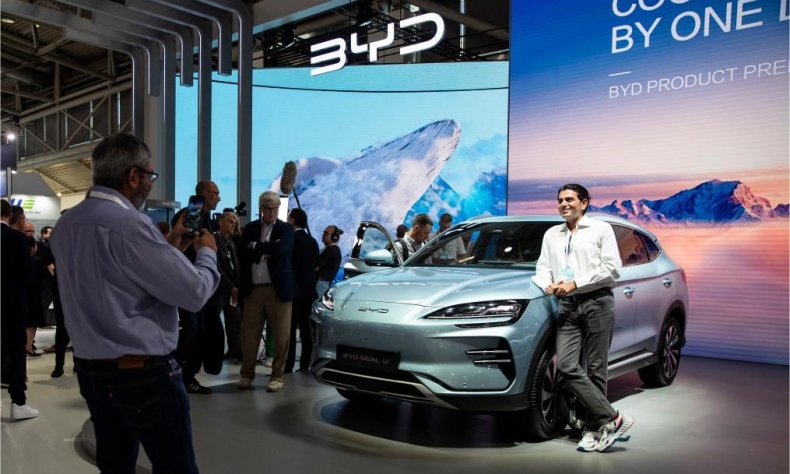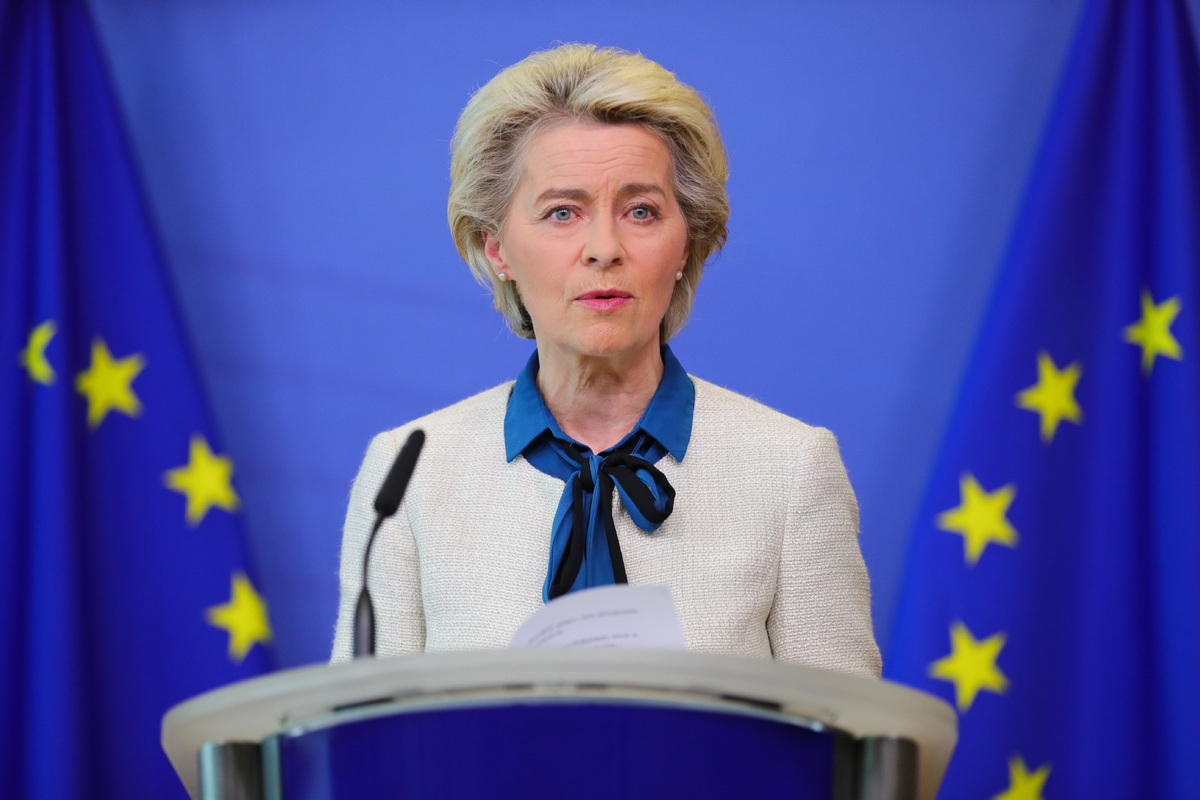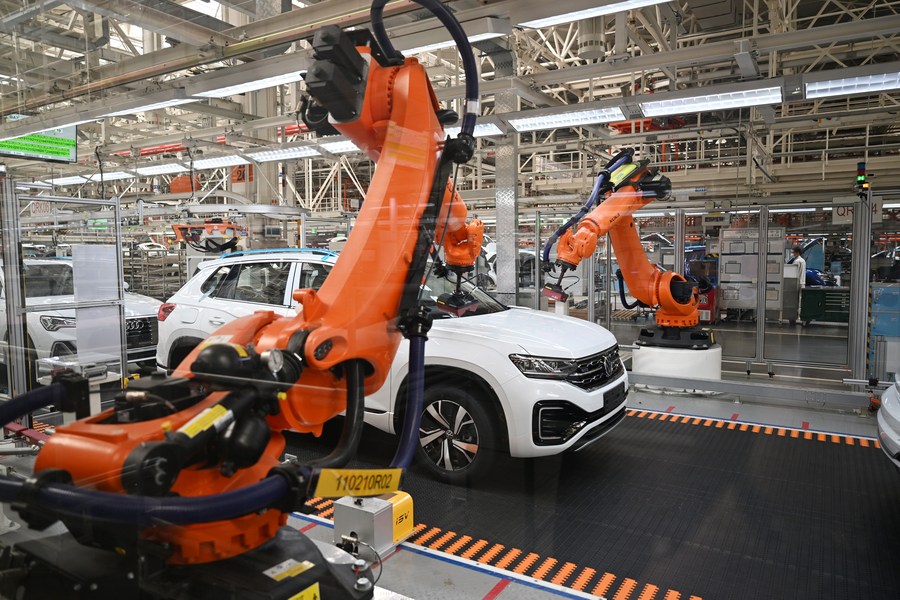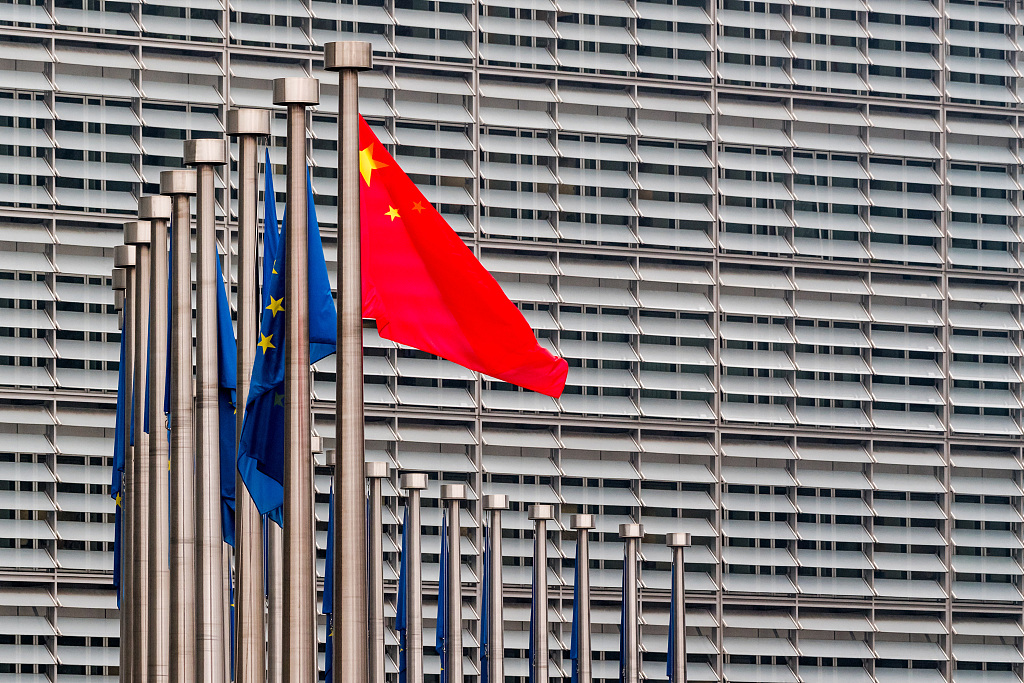EU Threatens Trade Clash with China Over EVs, But Brussels Could Stumble

The present-day EU policy to appease Washington while harming the European economy will not become a winning resolution for Brussels.
European Union (EU) Commission President Ursula von der Leyen appears to be auditioning for a new role as the next Secretary-General of NATO (North Atlantic Treaty Organization). According to the news agency Reuters:
“European Commission President Ursula von der Leyen is in the running to be the new head of NATO, The Sun newspaper reported on Friday, citing a diplomatic source.
A number of NATO member states have suggested von der Leyen would take over the alliance this October, the report said.
NATO’s current Secretary-General Jens Stoltenberg is expected to end his term as planned in October, after his mandate has been extended three times and having served for a total of almost nine years.”
It’s also believed that United States President Joe Biden stands likely to endorse her bid. Accordingly, we can better understand why von der Leyen has taken a tougher stand against China in recent years.
She also made a surprise announcement when delivering her annual State of the Union address at the EU Parliament in Strasbourg earlier this month. She said the EU would push forward on an anti-subsidy probe on Chinese EV (electric vehicles).
Von der Leyen argues that the Chinese government had provided subsidies to keep Chinese EVs at artificially low prices. Apparently, the Commission has 13 months to decide on whether to implement higher tariffs, likely 10 percent above standard rates, on Chinese EV imports or back away from it.
The EU Commission is setting the stage for the EU markets to “de-couple” from China, excuse me the Western media narrative and White House insist that we should use the term, “de-risk.”
The Western powers have discovered that the word, “de-coupling,” sounds like a divorce and that’s not good optics for U.S.-driven propaganda messaging.

“De-coupling” by any other name is still de-coupling
Washington requires staunch support from Brussels to move forward on ‘de-coupling’ measures on China and by offering von der Leyen the top-level position at NATO we are left to conclude that the EU Commission President’s role is no longer a prominent enough position for her.
Therefore, NATO holds a more influential position in Europe than the EU Commission. Why would von der Leyen seek to become the NATO secretary-general position in October if this is not true?
Yet, she must still succeed with the job interview by defying China in order for the U.S. to maintain its dominance over the European Union. Von der Leyen serves as the willing accomplice.
Nonetheless, the U.S.-U.K.-EU triumvirate to contain China will ultimately fail, since China plays a leading role in the global EVs’ industry. Europe’s EV makers have also enjoyed tremendous prosperity exporting their vehicles to China, as well as opening up factories and bolstering supply chains in the country.
Earlier this year, Volkswagen (VW), the German automaker giant and EV-maker, announced plans to invest over $1.1 billion to construct a new innovation center in Hefei, China. VW also holds a $700 million stake in XPeng, a start-up company for manufacturing Chinese EVs.
I can also confirm that EVs with German-branding have become much more popular in China this year. I reside in northeast Beijing where Volkswagen, BMW and Mercedes-Benz have auto dealerships located in the vicinity. I’ve noticed a remarkable uptick in German EVs on the roads here.

Hypocrisy abounds in Brussels
Brussels declaring that Chinese EV makers are engaging in “unfair competition” practices on account of receiving subsidies from the Chinese government sounds humorous.
EU member states have long earned notoriety for delivering massive subsidies to European companies, including to German automobile manufacturers. The German government has even provided billions of euros into the development of EVs in the domestic market.
Let’s review further details of an article posted by CNN on June 4, 2020 with the headline, “Germany hands out cash for electric cars as part of huge new stimulus splurge.”
In 2020, the German government was led by Chancellor Angela Merkel and Berlin explained its reasons for the measures in a press release:
“Germany is spending billions of euros on subsidies that will slash the price of electric cars as part of a huge economic stimulus package that could help automakers such as Volkswagen to sell vehicles that are better for the environment.”
Ironically when criticizing China’s EV makers, EU Commission President Ursula von der Leyen is quoted by the Wall Street Journal as saying:
“Global markets are now flooded with cheaper Chinese electric cars. Huge state subsidies are keeping prices artificially low and distorting the European market.”

Will the EU Commission also launch an anti-subsidy investigation on Germany? Germany’s current Chancellor, Olaf Scholz was serving as the country’s Finance Minister when the subsidies were announced.
“This is about renewable energies. This is about all the climate activities which are necessary to get to a [carbon] neutral economy in 2050. We have to start now,” he told CNN.
Meanwhile, it’s time to ask other pertinent questions: What is a greater priority for the EU – more affordable Chinese EV imports or protecting EU EV-makers, which would cause such vehicles to be more expensive for European drivers? Does Brussels really care about climate change mitigation?
Going for broke to contain China
The present-day EU policy to appease Washington while harming the European economy will not become a winning resolution for Brussels.
The EU Commission thinks they can succeed in trade wars against China over EVs but it’s more about waking up a sleeping dragon. Beijing has boosted trade and investment ties with the EU but Brussels has begun to push back the trend.
EU Commission President Ursula von der Leyen is not looking out for the best interests of the EU markets but reaffirming her commitment with the Biden administration to strike China to bolster her chances of becoming NATO’s next secretary-general.
On the political stage, von der Leyen is placing her selfish ambitions above the greater concerns of EU member states. She’s the type of vain politician who chases after prestigious titles while seemingly unconcerned about demonstrating good governance actions and behavior when serving in her current high-level position.
The article reflects the author’s opinions, and not necessarily the views of China Focus.
 Facebook
Facebook
 Twitter
Twitter
 Linkedin
Linkedin
 Google +
Google +



